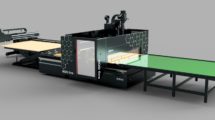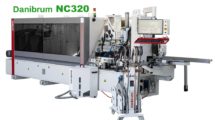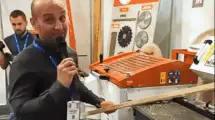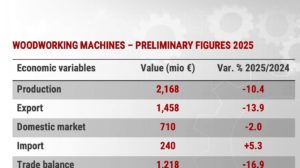Annulment of imm cologne 2025 has sparked much discussion in our industry. I have read complex opinions, but also some simplistic, verdict-like ones. That made me want to share some personal thoughts on what I think this means for our global future.
Beyond the headlines,
when it comes to the reasons behind the cancelation of imm cologne, there are many theories. Some believe growing pressure from Asian producers is playing a major role. Others talk about global conflicts creating uncertainty in international markets as the cause.
I believe that the reasons for canceling imm cologne 2025 are simple and they can be found in statements made by the organizers. The fact that the market has shrunk, that furniture consumption in Germany has declined, that the members of the German furniture industry trade associations (VDM and BVDM) have chosen not to participate in the largest industry fair in Germany early next year, gives us enough data to understand the general context of uncertainty hanging over the future of the German economy.
This, I believe, is the main reason for canceling the event: uncertainty. Quite simply, German companies chose not to dive headlong into the new year, into an event and with costs that did not guarantee an adequate ROI (Return Of Investment). In these circumstances, coupled with the general economic situation in Germany, they chose to pause and reflect on the future of the industry, of their companies, in the current economic context. Complex economic context, full of various challenges, it's true, but this is business. And the solution lies in finding solutions that bring you profit. Participating in imm cologne was not one of those solutions.
We all know that Germany's economy is going through challenges - the government expects a 0.2% decline in 2024 - but let's look beyond the headlines while we're on pause. As an observer of the industry for some time, I see this as a transformational moment not just for Germany, but for the entire global wood and furniture industry, at least in the area of events aimed at the industry. So let's talk about ...
... a pause for innovation, not panic.
The announcement of imm cologne is not a wake-up call, but rather a signal that it's time to rethink the way we do things. In Italy, Germany, or anywhere in the world, companies are reassessing how they present their products and interact with customers.
We already have small furniture companies using Instagram to showcase their products and production process, gaining a global audience. Other furniture manufacturers or retailers are experimenting with online 3D configurators for customized furniture. These are just the beginning, the potential is huge. Just think about:
- Integrating AI and new technologies: Did you know that this year's Nobel Prize in Chemistry was awarded for using AI to predict protein structures? This shows the huge potential of AI in complex fields. In our industry, AI could revolutionize furniture design, production process optimization and even customer interaction. Imagine a virtual assistant that can help customers choose the perfect furniture for their home based on millions of pieces of data about preferences and trends.
- Augmented and virtual reality in showrooms: Instead of meeting customers at big events, you can take your showroom to their homes. AR/VR technology allows us to create immersive shopping experiences where customers can virtually "place" furniture in their own homes before they buy.
- Personalized marketing on a large scaleWith big data and machine learning, hyper-personalized marketing campaigns can be created. Each customer could receive recommendations perfectly tailored to their lifestyle and aesthetic preferences.
- Hybrid events and micro-fairs: Instead of one big annual fair, a series of niche micro-events, both physical and virtual, can be organized. These events could be streamed live online, enabling global participation and creating valuable content for social media and digital platforms.
- Online communities and co-creation: Social platforms can be used to build strong communities around brands. Imagine participatory design sessions where customers help create new furniture collections. These are things that happen, but you need transparency, budgets and dedicated teams specialized in this area.
- On-demand production and customization at scale3D printing and other advanced manufacturing technologies allow us to think of completely new business models, where every piece of furniture can be customized without prohibitive costs.
In my experience, innovation often comes at times of pressure. So do opportunities. Now is the chance for the good guys to reinvent not just the trade fairs, but the entire industry ecosystem, because...
... the future is more connected than ever.
And here is what I think we will see in the near future:
- Global hybrid events making the most of existing assets, where online and offline are intertwined and all participants are part of the project. As an example, think of a concert where ticket-paying spectators are happily part of the show by wearing a glowing bracelet that lights up at the command of the director of that show. Maybe not the best example, but you get the idea. The objective is to maximize results by making the most of everything the event has to offer.
- Cross-border cooperation: I see a future where a designer in Scandinavia can collaborate in real time with a manufacturer in Asia, presenting virtual prototypes to a client in South America. These kinds of collaborations may already exist and I may not know about them.
- Sustainability as standard: No longer an option, but a necessity. The companies that will excel are those that integrate sustainable practices into every aspect of production and design.
- Large-scale customization: Technology will allow us, if it doesn't already, to offer customized products at mass production costs. It's a huge opportunity for the furniture industry.
- Global niche communities: I see the emergence of highly specialized global communities. Whether it's exotic wood enthusiasts or experts in restoring old furniture, these groups will become engines of innovation.
These are just a few examples that came to my mind as I was pausing. At the same time I also think about ...
... the role of media in the new era.
At Wooden Magazine, we see our role evolving. We are no longer just a source of information, but a facilitator of global connections. Through our digital platforms, we connect ideas, people and opportunities around the world. And it's not just us. Those who don't already need to take a break too.
That's why we've created the Wood Hub, an event that takes place within a larger event, combining the activities of a trade fair with the limitless possibilities of the online environment. Imagine a vibrant space where professionals meet enthusiasts, innovative ideas come to life and partnerships form naturally. That's what we want the Wood Hub to be, under the slogan "Let's connect the global wood industry, with every event!" It is, if you will, our, Wood Magazine's, contribution to transforming the industry.
I firmly believe that the future belongs to those who can think global, act local and adapt fast. Whether you're a small workshop in Transylvania or Tuscany, a furniture giant in Germany, the ability to connect and collaborate will be the key to success.
Instead of concluding ...
I want to be clear that for me (and I think for you as well) the cancellation of imm cologne 2025 is not the end of an era, but the beginning of a new, more dynamic one. It is an invitation to us all to be pioneers of change.
I am curious to hear your opinions. How do you see the future of the industry, whether you are in Italy, Germany, Romania or anywhere else in the world? What opportunities do you see in these changes? Let's connect the global timber industry with every event!




































Add comment